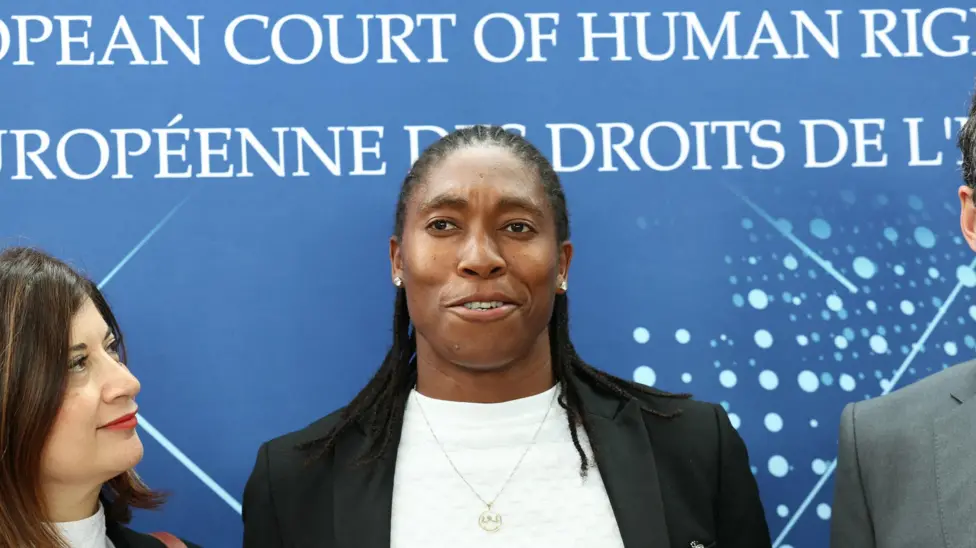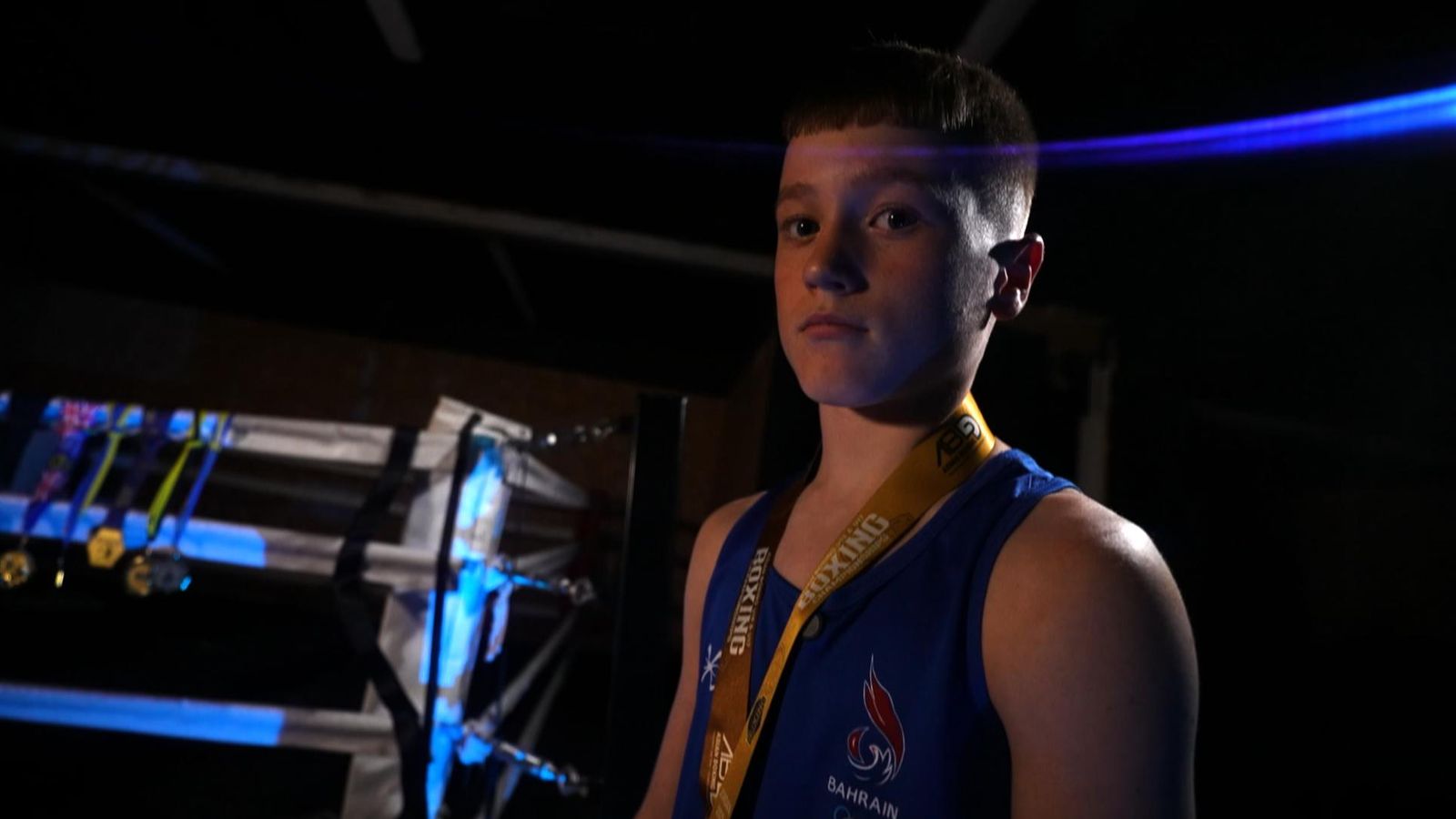Semenya's right to a fair hearing violated - ECHR
Caster Semenya's right to a fair hearing was violated by the Swiss Federal Supreme Court when she lost a 2023 appeal against World Athletics regulations that effectively barred her from competing, Europe's top court has ruled.

The double 800m Olympic champion won a partial victory at the European Court of Human Rights (ECHR) in her long legal battle over athletics' sex eligibility rules.
Semenya, 34, was born with differences of sexual development (DSD) and has been unable to compete in the 800m since World Athletics brought in rules in 2019 restricting testosterone levels for track events from 400m up to the mile.
The South African middle distance runner believes World Athletics has shown discrimination against athletes with DSD by insisting they reduce testosterone levels in order to be eligible.
Athletics' governing body insists the rules, which in 2023 were expanded to cover all female track and field events, are needed to ensure fair competition and to protect the female category.
Semenya was the Olympic champion over 800m in 2012 and 2016.
In 2019, she unsuccessfully challenged World Athletics' rules at the Switzerland-based Court of Arbitration for Sport (Cas).
In July 2023 the ECHR ruled in favour of Semenya in a case related to testosterone levels in female athletes.
The case at the ECHR was not against sporting bodies or DSD rules, but specifically against Switzerland's government for not protecting Semenya's rights and dates back to a Swiss Supreme Court ruling from 2020.
Switzerland's government requested the matter be referred to the ECHR's Grand Chamber, which has now found that the Swiss ruling "had not satisfied the requirement of particular rigour" under Article 6 (right to a fair hearing) of the European Convention on Human Rights.
The judges said the Swiss court's review "had fallen short" of that requirement.
However, the Grand Chamber found Semenya's complaints under Articles 8 (right to respect for private life), 13 (right to an effective remedy) and 14 (prohibition of discrimination) inadmissible as they "did not fall within Switzerland's jurisdiction".
As the case concerns the Swiss government and not World Athletics, it will not immediately affect the current restrictions on DSD athletes.
Semenya said the outcome was "great for me, great for athletes" after leaving the court in Strasbourg, France.
"This is a reminder to the leaders [that] athletes need to be protected," she said.
"Before we can regulate we have to respect athletes and put their rights first."
Decisions made by the ECHR's Grand Chamber are not open to appeal.
Semenya's case could now go back to the Swiss federal court in Lausanne.
World Athletics declined to comment.
Semenya's legal battle kept alive
This ruling keeps alive Caster Semenya's long legal battle against controversial sex eligibility rules that require DSD athletes to reduce their natural testosterone levels to participate in elite female competition.
What it will not do is overturn World Athletics rules that effectively ended Semenya's career.
Her case was brought against the Swiss government, and officials at track and field's world governing body believe it could take several years before the case is heard again by the country's federal supreme court, if indeed it ever is.
This also comes too late for Semenya, who is now coaching, to resume her own career on the track.
World Athletics is confident the scientific research showing that athletes with the same DSD condition as Semenya retain a significant, male-like physiological advantage over non-DSD rivals has become more compelling since they introduced - and then strengthened - the rules.
Indeed, the organisation is planning on bringing in cheek swab DNA tests in the next few weeks to determine if an athlete is biologically female.
The test will look for the SRY gene, which is part of the Y chromosome and causes male characteristics to develop.
It would effectively bar an athlete with the same condition as Semenya from competing in the female category, regardless of any testosterone suppression.
At a time when the International Olympic Committee - under new president Kirsty Coventry - is considering applying such a test across all sports, the ECHR ruling will mean renewed scrutiny on rules that sports insist are needed to protect fairness in the female category, but which critics argue are discriminatory.
Who is Caster Semenya?
Semenya is a two-time Olympic champion and three-time world champion over 800m.
Between 2009 and 2019, the South African dominated her sport, sealing a 30th consecutive victory when she won the Doha Diamond League 800m in May 2019.
She was given a hero's welcome in South Africa after picking up her first World Championship gold in 2009, with thousands of jubilant fans turning out at Johannesburg airport to greet her.
However, her rapid rise from unknown teenager to global star was also accompanied by scrutiny over her gender and possible advantages in her biology.
It was later revealed she was born with DSD, one outcome of which means she has an elevated level of testosterone - a hormone that can increase muscle mass and strength.
It was in the Cas ruling that Semenya's specific DSD was confirmed as 46 XY 5-ARD (5-alpha-reductase deficiency). People with this particular DSD have the male XY chromosomes. Some are recorded as female or male at birth depending on their external genitalia.
Semenya said in 2023 she was turning her attention to "winning battles against the authorities" rather than collecting medals.
Cas said athletes such as Semenya with 5-ARD have "circulating testosterone at the level of the male 46 XY population and not at the level of the female 46 XX population", which gives them "a significant sporting advantage over 46 XX female athletes".
In an interview with BBC Sport in 2023 Semenya said she was "born without a uterus" and born "with internal testicles" and said: "I am a woman and have a vagina".
-BBC







